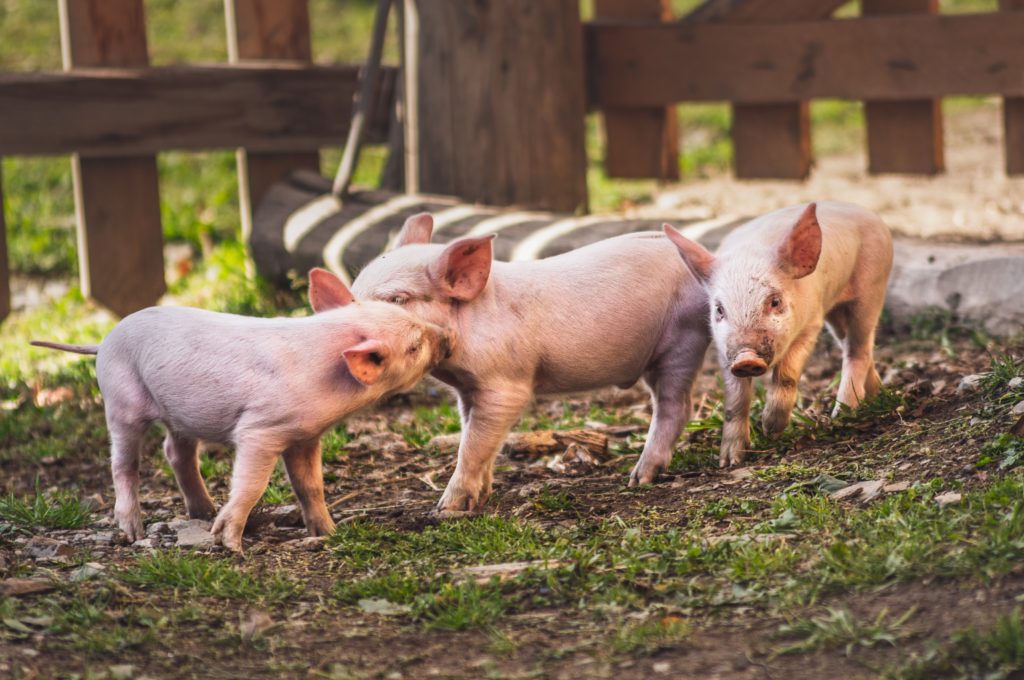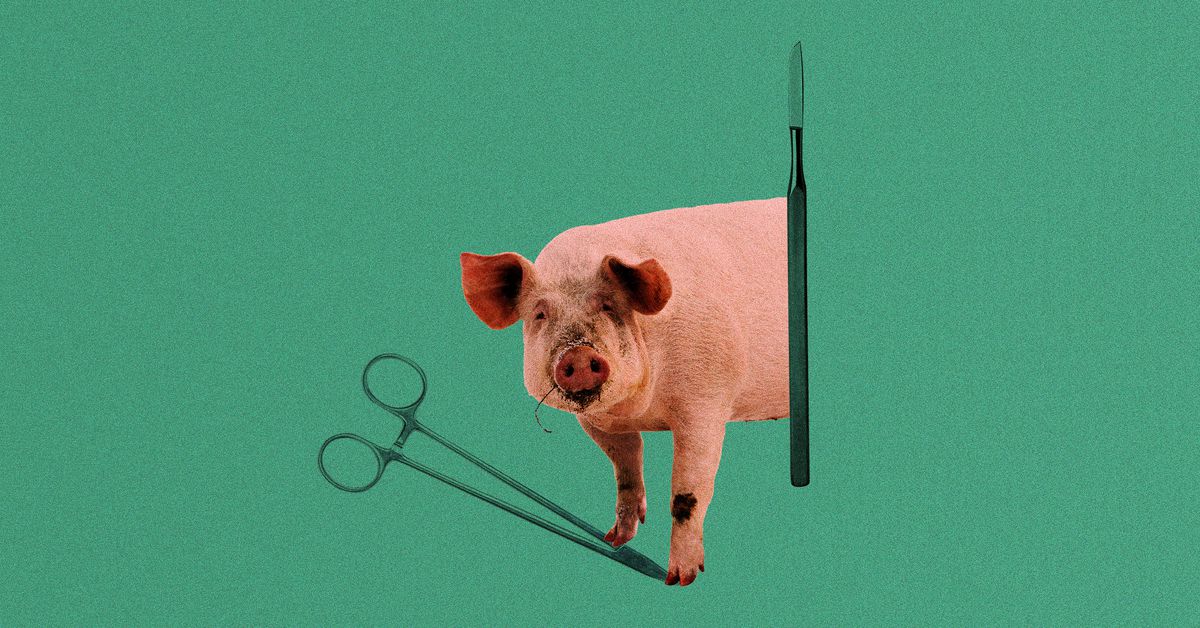02/13/2022 SOURCE: www.capitalpress.com
-
(0)
-
Bookmark
- Comments. (0)
 John LaRose Jr.
John LaRose Jr.
Topics: Precision AG , Agriculture Global, Animal Welfare/Humane Treatment, Pork/Swine/Pig/Hog, Education, Animal Health,
Virtual tours make pig farming more transparent
2.02.2022 - University of Göttingen researchers investigate use of virtual reality glasses and tablet screens Many people would like to see better animal welfare and transparency in livestock farming. In recent years, agriculture has increasingly tried to be more open, for example through farm tours.
-
(0)
-
Bookmark
- Comments (0)
01/31/2022 SOURCE: www.capetownetc.com
According to the Western Cape's Agriculture MEC, Ivan Meyer, the quarantine notice urges community members and pig farmers not to remove any pigs or pig products from the area to prevent further spreading of the disease.
Authorities detect African Swine Fever in the Southern Cape
-
(0)
-
Bookmark
- Comments. (0)
01/13/2022 SOURCE: flip.it
The transplant of a pig heart into a human being is a terrible blessing that should give us all pause.
The terrible blessing of using pigs as organ donors
-
(0)
-
Bookmark
- Comments. (0)
 John LaRose Jr.
John LaRose Jr.
Topics: Dairy, Animal Welfare/Humane Treatment, Research, Animal Health,
Body condition in transition cows
Excellent nutrition during lactation results in proper body condition in dry cows, which is a determining factor for a successful next lactation.
-
(0)
-
Bookmark
- Comments (0)
12/26/2021 SOURCE: www.timesofisrael.com
Agriculture Ministry says it will kill 320,000 laying hens, in addition to the 244,000 that have already been culled in northern Israel in past week
Hundreds of thousands of chickens to be culled as bird flu spreads; egg shortage due
-
(0)
-
Bookmark
- Comments. (0)
 John LaRose Jr.
John LaRose Jr.
Topics: Dairy, Agriculture Global, Animal Welfare/Humane Treatment, Animal Health,
-
(1)
-
Bookmark
- Comments (0)
 John LaRose Jr.
John LaRose Jr.
Topics: Dairy, Education U.S. MidWest, Research, Ag North America, Animal Health,
Different perspectives on grazing dairy cows - Country Folks
by Tamara Scully Penn State Extension’s Dairy Team has launched a podcast, “Bovine Banter,” where diverse […]
-
(0)
-
Bookmark
- Comments (0)
 John LaRose Jr.
John LaRose Jr.
Topics: Soybeans, Livestock/Meat, Agriculture Global, Education U.S. MidWest, Animal Health,
Compounds from soybeans may improve animal health
Antimicrobial compounds that soybean plants produce when threatened by insects, diseases and even drought may help animals stay healthy, thereby reducing the need for antibiotics. “When a soybean is attacked by a pathogen, the plant produces phytochemicals called glyceollins as a defense mechanism,” explained assistant professor Bishnu Karki of South Dakota State University’s Department of Biology and Microbiology. Her research group has identified pathogens and lab-scale processes to trigger production of glyceollins and begun assessing soybean varieties to see which produce higher levels of the antimicrobial compounds. “Animals, such as pigs and poultry, already consume diets high in soybeans and could benefit from the phytochemical’s antimicrobial properties,” Karki said, pointing out scientists are studying the impact of glyceollins on human health, specifically in relation to cancer, inflammation and cardiovascular diseases. Karki’s research is supported by U.S. Department of Agriculture Hatch Act funding through the South Dakota Agricultural Experiment Station. Two master’s students and several undergraduates have also worked on the project. In the past, antibiotics were integrated into animal feed and water to help animals stay healthy and reach market weight efficiently. However, the FDA’s Veterinary Feed Directive, which seeks to decrease the development of antibiotic-resistance microorganisms, recently limited the use of antibiotics to specific health problems. Therefore, livestock producers are in need of natural alternatives, such as glyceollin-enriched soybeans, that can provide benefits similar to those of antibiotics. Doctoral candidate Ahmad Alhomodi, left, and assistant professor Bishnu Karki of the Department of Biology and Microbiology examine soybeans inoculated with two different edible fungi. The pathogens stress the beans so they produce glyceollins, which have antimicrobial properties.Producing glyceollins Under normal conditions, glyceollins are not present...
-
(0)
-
Bookmark
- Comments (0)
11/19/2021 SOURCE: www.nrdc.org
McDonald's fails to deliver on its pledge to end routine antibiotic use in global beef supplies.
McDonald’s Empty Promises Fuel Antibiotic Resistance Crisis
-
(0)
-
Bookmark
- Comments. (0)










